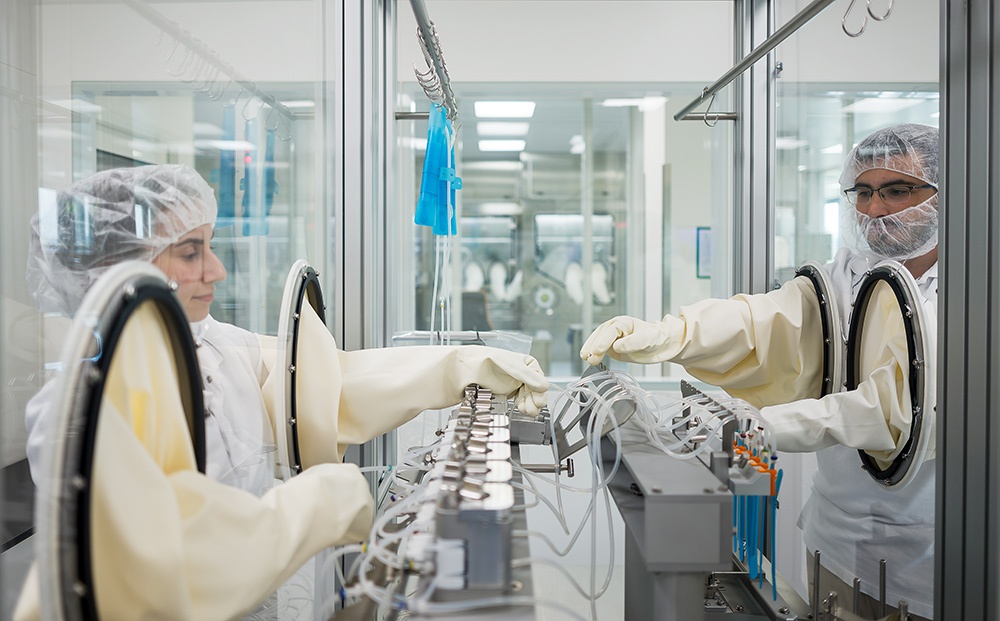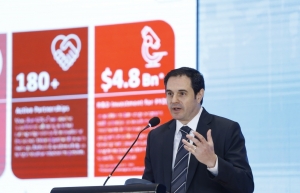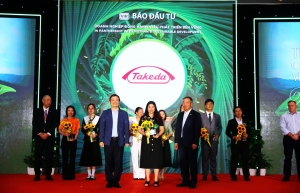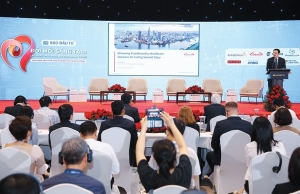Takeda’s health innovation and net-zero ambition
To successfully achieve carbon neutrality, Takeda invested in more than 30 renewable energy and carbon offset projects across 12 countries. These projects support the use of wind and solar energy, clean water availability, forest conservation, and the preservation of biodiversity, and contribute to 15 of the 17 UN’s Sustainable Development Goals.
 |
| Takeda’s health innovation and net-zero ambition, Source: Takeda |
A notable example is the construction and repair of boreholes in Malawi, providing people with clean water and reducing their reliance on wood-burning stoves, thus mitigating deforestation.
In rural areas of China, the company has supported the replacement of coal stoves with solar cookers, improving air quality and meeting the daily needs of residents.
Additionally, Takeda has supported the conservation of over 8,600 hectares of forest in Tennessee in the United States, and implemented a sustainable forest management programme in Japan.
Looking ahead, Takeda aims to achieve net-zero carbon emissions within its operations by 2035 and across its entire value chain by 2040. This goal means eliminating at least 90 per cent of emissions while investing in direct carbon capture technologies or planting new forests.
For instance, Takeda’s recently opened BioLife Plasma Center in Linz, Austria, is designed to fully operate on emission-free electricity. The company has also pledged to use 40 per cent electric or hybrid vehicles in 2025, aiming to eliminate internal combustion engine vehicles by 2030.
In 2023, Takeda launched the first positive energy manufacturing building in Singapore, certified with the BCA Green Mark Platinum Positive Energy designation.
Takeda’s environmental commitment is championed by its workforce. Its teams have launched numerous initiatives to maximise clean water and natural gas efficiency in production processes. The company also prioritises recycling and material reuse to reduce waste across operations, achieving an outstanding result in 2024 as 78 per cent of waste diverted from landfills.
Another crucial factor is external collaboration. Internal data shows that 87 per cent of carbon emissions come from partners in the supply chain. By the end of 2023, 53 per cent of Takeda’s product packaging came from recycled sources or was certified as sustainable, contributing to waste reduction.
Currently, Takeda is racing to complete the target of having two-thirds of suppliers achieve emissions reduction goals. Furthermore, to significantly reduce the carbon footprint from transportation, half of the company’s goods will be transported by sea instead of air.
Climate change has boosted the breeding of the Aedes mosquito, making dengue fever increasingly unpredictable and dangerous. The World Health Organization (WHO) recognises dengue as a global health threat, including in Vietnam. While vector control and mosquito bite prevention are essential, the WHO advocates a comprehensive prevention strategy, including vaccination.
Drawing on over 70 years of vaccine expertise in Japan, Takeda is now expanding globally, offering sustainable healthcare solutions and partnerships to prevent infectious diseases like dengue.
As part of that, Takeda convened the Global Dengue Forum during the COP28 climate summit in Dubai. In collaboration with the World Mosquito Program, Johnson & Johnson, and other like-minded partners, this unique forum brought together multidisciplinary experts in environmental science, vaccines, and climate change to foster collective action against the growing threat of dengue, aiming to build consensus around seven key areas for improving public health.
After the event, Takeda developed an action report and white paper to galvanise support for a long-term global dengue initiative, emphasising the need for collaboration across sectors to effectively combat this public health challenge.
Following regulatory approval in Vietnam, in September 2024 Takeda’s tetravalent dengue vaccine became officially available, marking a significant milestone as the first vaccine to prevent the disease in the country.
The vaccine has now been approved in over 40 markets worldwide, including the European Union, Colombia, Thailand, Malaysia, and Vietnam. In countries like Brazil, Argentina, and Indonesia, people can access this vaccine through public immunisation programmes.
Takeda’s net-zero strategy seamlessly integrates sustainable development with impactful healthcare solutions, setting a benchmark as well as underscoring its leadership in the pharmaceutical industry.
* This information is available to the public for information purposes only. It should not be used for diagnosing or treating a health problem or disease. It is not intended to substitute for consultation with a healthcare provider. Please consult your healthcare provider for further advice.
 | Takeda delivering transformative healthcare solutions At the VIR health conference- "Empowering health innovation for sustainability vision" held on September 25, 2024, Dion Warren – area head of India and Southeast Asia (I-SEA) of Takeda, emphasised Takeda's commitment in delivering transformative healthcare solutions for lasting social value. |
 | Takeda honoured for contributions to Vietnam's sustainable development With over a decade of groundbreaking innovative solutions in Vietnam's pharmaceutical sector, Takeda has been recognised for its contribution to sustainable development. |
 | Takeda’s partnerships to deliver innovative medicine and vaccines Global biopharmaceutical company Takeda is deepening collaboration with stakeholders to deliver innovative healthcare solutions in Vietnam, underscoring its commitment to creating sustainable values for the community. |
What the stars mean:
★ Poor ★ ★ Promising ★★★ Good ★★★★ Very good ★★★★★ Exceptional
Related Contents
Latest News
More News
- Trung Nam-Sideros River consortium wins bid for LNG venture (January 30, 2026 | 11:16)
- Vietnam moves towards market-based fuel management with E10 rollout (January 30, 2026 | 11:10)
- Envision Energy, REE Group partner on 128MW wind projects (January 30, 2026 | 10:58)
- Vingroup consults on carbon credits for electric vehicle charging network (January 28, 2026 | 11:04)
- Bac Ai Pumped Storage Hydropower Plant to enter peak construction phase (January 27, 2026 | 08:00)
- ASEAN could scale up sustainable aviation fuel by 2050 (January 24, 2026 | 10:19)
- 64,000 hectares of sea allocated for offshore wind surveys (January 22, 2026 | 20:23)
- EVN secures financing for Quang Trach II LNG power plant (January 17, 2026 | 15:55)
- PC1 teams up with DENZAI on regional wind projects (January 16, 2026 | 21:18)
- Innovation and ESG practices drive green transition in the digital era (January 16, 2026 | 16:51)

 Tag:
Tag:




















 Mobile Version
Mobile Version